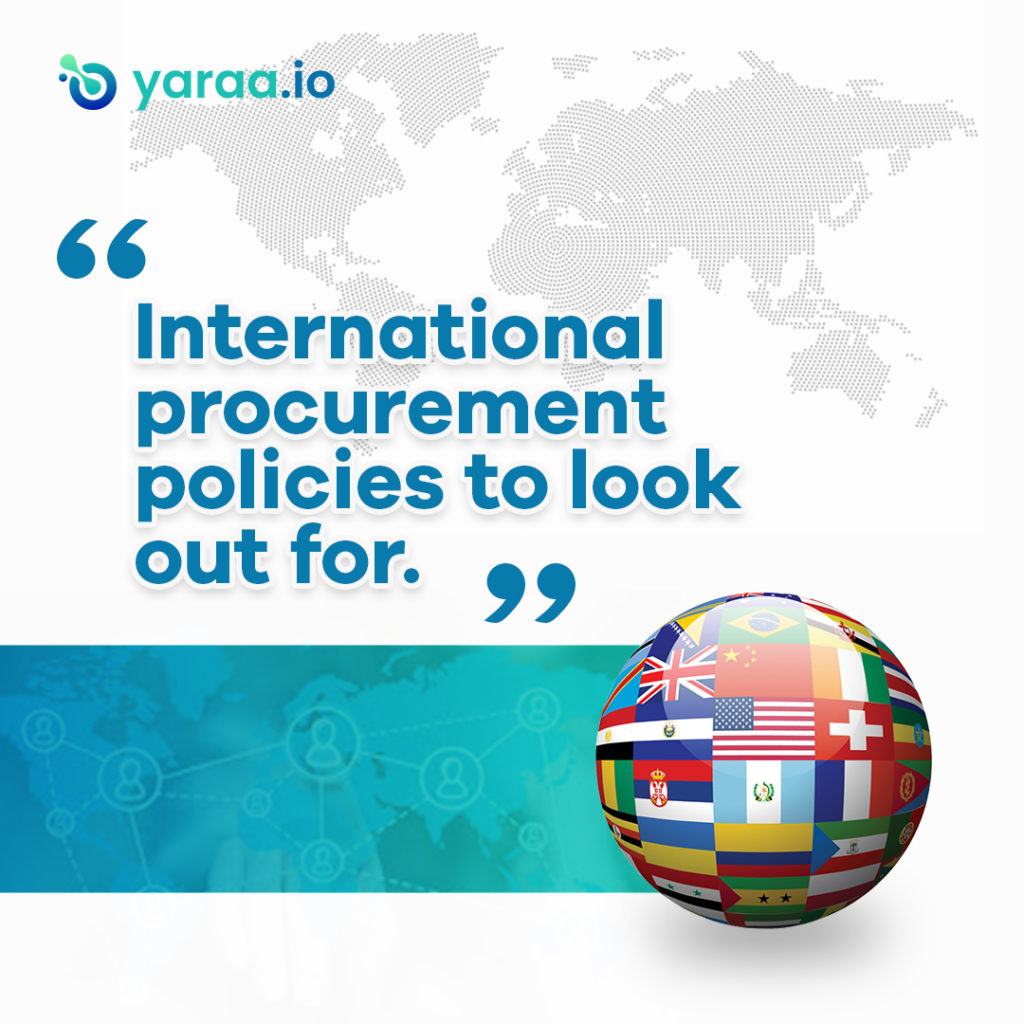International procurement policies are more important than ever in today’s global marketplace. Globalization has created a complex web of suppliers, customers, and intermediaries, and it can be difficult to know exactly where you stand and what you should expect from your foreign partners when doing business in foreign markets. To make sure your company gets the best possible deal on products from abroad and follows the most ethical procurement procedures at all times, we’ve put together this list of some international procurement policies to look out for.
Some International Procurement Policies to Look Out For:
Data Privacy:
One of the biggest considerations when working internationally is data security. If a company has sensitive information stored in one country and employees or partners in another, there’s always a risk that data could get leaked without proper protection. To avoid this problem, organizations need to use encryption methods like Virtual Private Networks (VPNs) or token-based authentication to encrypt data before it leaves the sender’s location and protect it on its journey through any untrusted networks.
E-Government Section: Financing
Obtaining a loan is a complicated process that takes time and effort. The good news is that there are many different types of loans available to cover your diverse needs. You should start by understanding the type of loan you need, which will help you determine what type of lender or agency you should turn to for assistance.
First and foremost, understand the difference between secured and unsecured loans: secured loans require collateral (e.g., property) as collateral for the money lent, whereas unsecured loans do not, but are riskier in nature because they can be lost if the borrower defaults on their payments.

Trade Agreements:
Free trade agreements create a more open and borderless global marketplace by removing taxes, tariffs, and other restrictions on trade. There are two main types of free trade agreements: bilateral agreements between two countries or groups of countries and multilateral agreements that involve many countries. A good example of the former is NAFTA (North American Free Trade Agreement) which was signed in 1994 by the United States, Canada and Mexico. A good example of the latter is the Trans-Pacific Partnership (TPP) which involves 12 Pacific Rim countries.
Also Read: KEY FEATURES OF EFFECTIVE SUPPLY CHAIN MANAGEMENT
Intellectual Property:
The result of the work carried out by the tenderer can be covered by several different intellectual rights, principally copyright or patent right during the execution of an international procurement contract.
Here are some factors to look out for:
- Know who is responsible for IP in the country of manufacture.
- Conduct a patent search before sending any requests for quotes, information requests, or contracts.
- Beware of counterfeits: compare products and packaging with other genuine products, check for quality and authenticity indicators such as holograms or serial numbers, and research the company or organization that is distributing them.
- Consider local intellectual property laws when entering into a contract with a foreign supplier.
- Protect your idea before it’s stolen: make sure you have not violated any prior copyright agreements before publishing your idea on social media sites such as Facebook or Twitter.
Ethical Sourcing:
Organizations have the responsibility to ensure that products they procure are sourced in a responsible and sustainable way, and workers involved in the goods creation are making them in a safe and fair environment. This policy is included to ensure that contractors and the wider supply chain are not involved in modern day slavery.
Finally, the process of international procurement is daunting enough when it comes to finding the right supplier for the job. Fortunately, there are several international policies that can keep your international purchasing tasks in order as we have discussed in this article. Having an understanding of these international policies can tap your organization into a vast market that has a plethora of potential for revenue generation.